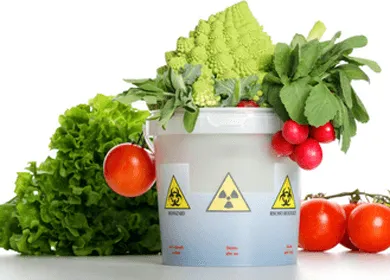
- Share on Facebook5
- Share on Pinterest
- Share on Twitter
Many mainstream media outlets have once again jumped on the recent organic bashing bandwagon. In wide-spread coverage, these news outlets covered a report from the American Academy of Pediatrics that state that organic foods were no healthier for children than conventionally grown foods. The study also indicated that there is inadequate evidence that pesticides in conventionally grown foods have an effect on children, there, in fact, are multiple studies about exactly this topic.
 ADHD Risk
ADHD Risk
In a study from the University of Montreal in 2010, researchers investigated the specific effects of low levels of pesticides in children and found that they posed a risk for developing ADHD (attention deficit hyperactive disorder). Malathion was the targeted pesticide evaluated in this study due to its prevalent use. Although many pesticides are eliminated from the body within three to six days, residue indicates continual exposure.
The study found that continual Malathion exposure increased the risk of children developing ADHD by 55 percent. Researchers believe that because children are still developing, pesticide exposure increases risk of developing illness. Simply put, young bodies do not metabolize and eliminate pesticides as easily as adult bodies.
Brain Cancer Risk
Another study published in the journal Environmental Health in 2009 examined the effects of pesticide exposure on children related to cancer. This study examined children living in Pennsylvania, New York, New Jersey and Florida related to exposure to herbicides, fungicides and insecticides.
Researchers discovered that children with parents who were exposed to contaminates were substantially more likely to develop brain cancer than those with limited exposure. The most common forms of brain cancer linked to chemical exposure include astrocytoma – linked to herbicides – and primitive neuroectodermal tumors.
If one is comparing exact measurements of nutrients, vitamins, calories and the like in organic produce versus conventional produce, it can be argued that the numbers could be similar. But the issue is much larger than that. Organic loyalists argue that these reports and studies should go well beyond “conventional” diet verbiage and include all aspects of a healthy lifestyle, from a broader perspective. Pesticide exposure has been linked to multiple health risks. Pesticides are used extensively in conventionally grown foods. It is common sense that eating foods that contain even minimal levels of pesticides poses potential health risks for both children and adults, in addition to the negative impacts these pesticides have on our waters, estuaries, soil and wildlife.
The study that was recently conducted by Stanford University regarding the value of organic foods has been criticized for being flawed and having ulterior motives from GMO supporting industries. How the AAP can claim that there have been no reports of long-term negative effects of pesticide use when the research is there that show the ill effects is alarming, and the AAP is a very reputable organization. Taking such studies at face value without critically evaluating what is left out of the study and the motivation for conducting the study serves nobody well.
If you had the option of feeding your child an organically raised food or a conventionally grown food, which would you choose?
– The Alternative Daily
- Share on Facebook5
- Share on Pinterest
- Share on Twitter

